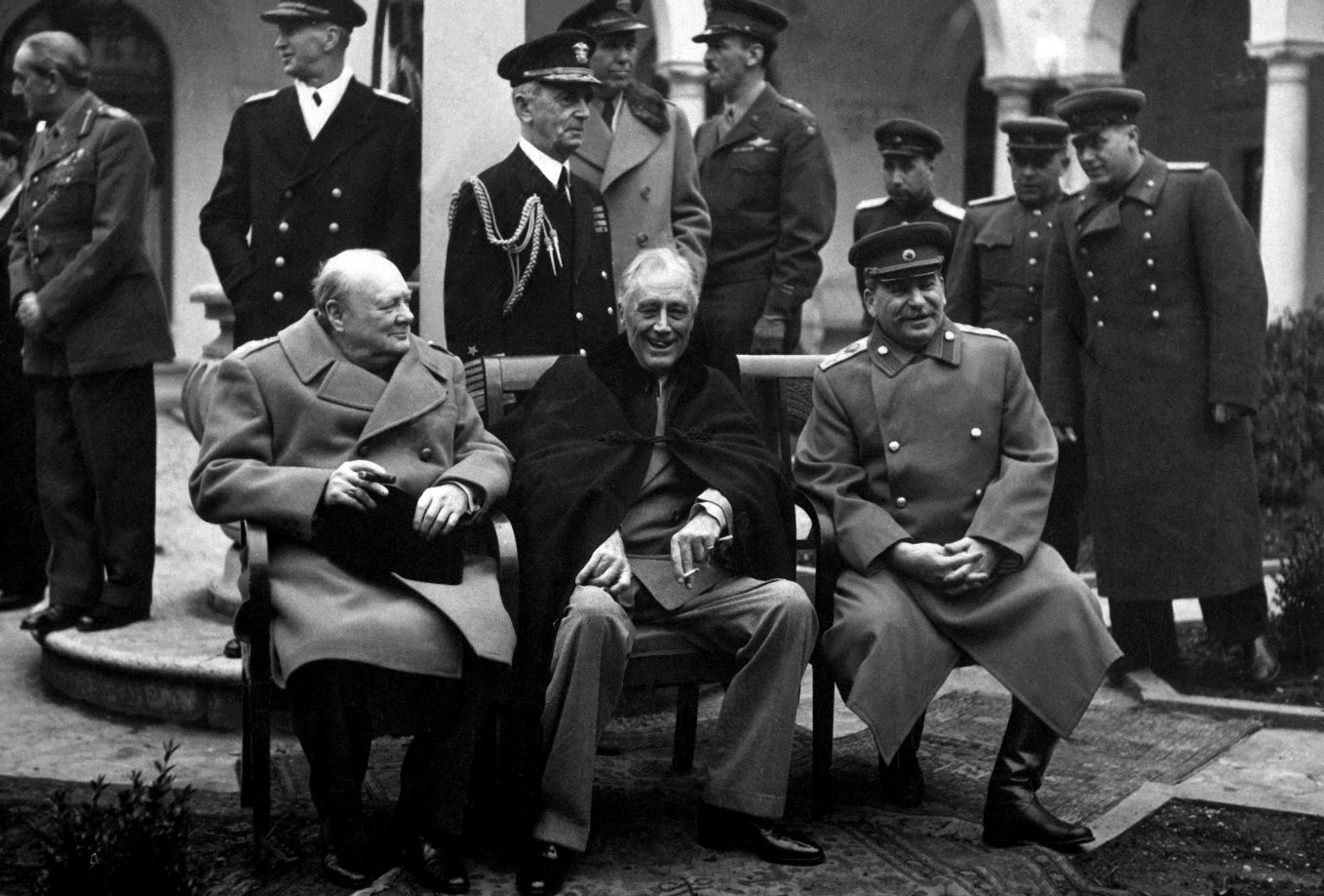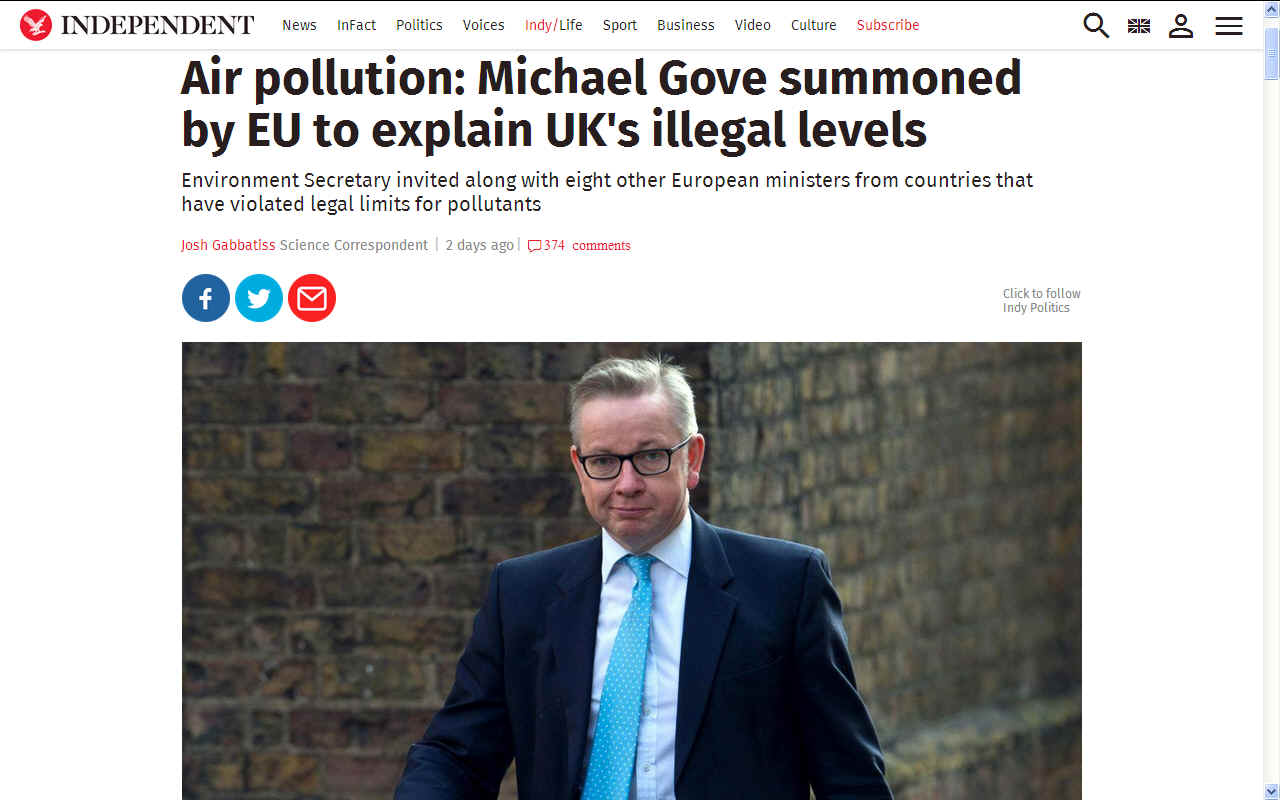|
CLAIRE PERRY
|
||||||||||||||||||||||||||||||||||||||||||||||||||||||||||||
CLAIRE PERRY
What is the cost to our health and environment if we do not avert the breakdown of our climate, and with it the ecosystems that support the way of life of billions around the world?
It will require concerted, focused action across government. We already have the policy framework in place – independent analysis shows that no other major economy has done more than the UK to reduce carbon emissions since the year 2000 – and Conservative-led governments have overseen the investment of more than £92bn in clean energy since 2010. Thanks to our policies we have seen coal use on the grid tumble from more than 40 per cent in 2012 to our first coal-free fortnight last month.
Over the next three decades, petrol-guzzling cars will be overtaken by zero-emission electric vehicles, our advanced manufacturing sectors will have deployed innovative technology to store harmful emissions back in the ground, and almost all of our power will come from the sun, wind and other low-carbon sources. This all represents huge opportunity for communities across the UK, catalysed by the record levels of research and development. This government is set to spend more than £3bn on green innovation by 2021, powering almost 400,000 new green collar jobs across the UK.
But we must ensure this ambitious transition doesn’t have losers as well as winners – and government will have a clear role in ensuring a just transition for those working in changing sectors, and that costs are borne by those most able to pay.
Today’s move, in legislating for net zero, shows here in the UK we are unafraid to lead the world in tackling the most important challenge of our times. No one says this will be easy and of course there will be costs. But what is the cost to our health and environment if we do not avert the breakdown of our climate, and with it the ecosystems that support the way of life of billions around the world?
FORMER PRESIDENT COP 26 - We thought we were in good hands with Claire Perry at the head of the table, doing her best to push for change. We were saddened to learn of the political agendas that saw her come a cropper, presumably the UK fearing we might commit to too much. Big thanks to Claire for all she has done.
Climate experts estimate the benefits, including health and environmental, could almost fully offset the costs of moving to a net-zero emissions economy – and that doesn’t account for the huge economic opportunity of leading the global shift to greener, cleaner economy which is at the heart of the UK’s modern industrial strategy. Already more than 120 business leaders have written to the prime minister saying that setting a net-zero target is the right thing to do, for business and for a brighter and more prosperous future.
Just a few years ago, my ambition to end our country’s contribution to climate change entirely within a few decades – from a country that started a coal-fired industrial revolution – would have been dismissed as impossible dreaming. But today we are putting that aim into law. For those who say the UK is a carbon minnow in terms of emissions next to China, India, or the US, I’d remind them that we have historically been among the biggest emitters of CO2 in the atmosphere today. By demonstrating the huge post-Brexit economic opportunity of taking climate action today we can capture early mover advantages for our own benefit and show other nations that tackling carbon emissions is an economic and environmental win-win
We are becoming the country to copy when it comes to clean growth. Legislating today and by bidding to host the all-important 2020 United Nations climate talks in the UK, we can demonstrate our commitment and our willingness to work with all international partners to cut climate emissions. With this position as a global leader in the fight against global warming we can be bold, ambitious and creative to protect our green and pleasant land for future generations and also help preserve the precious planet that we all call home. There is no Planet B.
TRANSPORT
As the former Transport Under Secretary for the Conservative Party, Claire Perry will be looking for climate change friendly ways of improving road stocks from existing assets such that air quality is improved and vehicles of the future may be serviced. If only our own MP, Nus Ghani was doing the same, perhaps with the backing of Ann Newton, Johanna Howell and Susan Stedman. Wealden seems to have forgotten that car ownership per household in the South-East is higher than other areas of the country.
Claire is already urging councils to take advantage of Government grants to boost EV infrastructure by writing to all councils urging them to take advantage of a Government EV infrastructure grant. Nice one Mrs Perry.
According
to the Huffington Post, Tory minister Claire Perry threw her weight behind a brewing backbench rebellion against giving
Scotland more powers in the event of a No vote in
the independence referendum.
STATEMENT 20 DECEMBER 2018 - UNFCCC
"The 24th conference of the parties
(COP24) to the United Nations framework convention on climate change (UNFCCC) took place in Katowice, Poland, from 2 to 15 December. I led the
United Kingdom delegation, accompanied by the Minister for Asia and the Pacific, my right hon. Friend the Member for Cities of London and Westminster (Mark Field), and the Under-Secretary of State for Environment,
Food and Rural Affairs, my hon. Friend the Member for Suffolk Coastal (Dr Coffey). As a demonstration of the UK’s action at all levels, the First Minister of Scotland and the Scottish Cabinet Secretary for the Environment also attended, as well as the Deputy Premier of the Government of the British Virgin Islands, representing the UK overseas territories.
THE BIG THREE - Sir Winston, Theodore Roosevelt Jr. and Joseph Stalin at Yalta before Roosevelt passed. We must go forward, not backward - and learn from our mistakes - as Planet Earth United. There is no Planet B and there is no Ocean B. We have reached the limits of exploiting Earth, calling for a phased reduction of output, until equilibrium is reached.
The challenge is to get all the Parties to agree what that the level of sustainability is, or might realistically be for their country as part of the international jigsaw puzzle. This is the fabled Circular Economy that we should all be aiming for.
CLIMATE ECONOMICS - CLIMATE CHANGE TRUST'S VIEW
It's all about the money for most UN Members, apart from China, Russia and the USA (CHRUSA). In the case of the latter, it is about the money, but it is also about military agendas. Military power is about money from economic success.
Hence, for CHRUSA the remaining UN Members may wish to consider adopting rules that penalize countries that are not on target for a zero carbon economy. There are several ways of doing this and CHRUSA may surprise us all and change their ways once enlightened, but it is wise to be prepared:
"Speak softly, but carry a big stick" - Sir Winston Churchill
The famous quote from one of Britain's best known Prime Ministers was saying have a big army and powerful chums to back you up. Today, thermonuclear war based on First Strike capability is madness that even CHRUSA is unlikely to contemplate with so much to live for, except for climate change extinction now looming as the most compelling international threat to the survival of the human species. Forget World War Three, the big stick being nuclear weapons, concentrate on what is actually killing us and making a stick out of failure to care for your fellow man as a duty.
There is the alternative view that in eliminating their enemies, the land they acquire can be exploited for themselves with so many fewer mouths to feed from the thermonuclear annihilation. But Chernobyl is an example of why that scenario would not work.
Should any Member Nation not accept the scientific fact that the planet is warming, they might suffer Free Trade restrictions on a sliding scale linked to greenhouse gas emissions, or other financial penalty in loans not being repayable. So resetting the clocks.
Though this may affect around 193 UN Members in the short term, i.e. those who rely on cheap imports of iron, electrical goods, solar panels and batteries (as examples), it will teach the unified UN Members to rely on themselves for these goods, but most especially when it comes to energy imports.
If energy imports are no longer needed with binding targets for renewables, compliant Members might manufacture their own goods with cheap solar and wind energy. The oil gobblers will price themselves out of the market - and that goes for transport, where the reduced cost of moving goods using EVs and getting to and from work will be a market game changer.
Recycling should be a big thing to make use of materials we have already paid for. Steel and aluminium have no limit on life when recycled, except the energy cost of processing: re-melting and reforming. Energy can be extracted from waste, though this is not suggested where it involves combustion. The big deal is renewable energy for Energy Security.
The one remaining snag is food production, where the UK is weak and import reliant. Even more of a problem is food security from reducing arable land and reducing fish harvests from acid oceans, pollution and over-fishing - all such issues being interrelated.
These unrehearsed opinions are based on common sense, subject to change as fresh evidence arises and simply comment. There is no point the Trust developing political strategies where their aims have no political agenda. The Trust only wishes to draw attention to climate change and food security as being more of a problem than some of the Parties might admit with a view to securing equilibrium for all of the Parties.
Growth is (or should be) a thing of the past, the new challenge is conservation. Making the most of what you have, without harming your neighbours. (NOTE: For the avoidance of doubt, these are not the views or opinions of Claire Perry)
Education
Political career
CONSERVATIVE CLIMATE - Michael Gove has been summoned to Brussels because of his party's failure to meet air pollution targets despite warnings about which the Prime Minister was aware of.
UK
POLITICS The United Kingdom has many political parties, some of which are represented in the House of Commons and the House of Lords. Below are links to the websites of the political parties that were represented in the House of Commons after the 2015 General Election:
CO-OPERATIVE PARTY DEMOCRAT UNIONIST PARTY PLAID CYMRU SINN FEIN SOCIAL DEMOCRATIC AND LABOUR PARTY UK INDEPENDENCE PARTY ULSTER UNIONIST PARTY
Social Democratic and Labour Party
We are concerned with how the make up of the above parties and (reasonably) popular policies may affect the Wealden district, because we are all brothers on two islands in the Atlantic Ocean and what we do or fail to do is likely to rebound on ourselves and our fellow man in other nations around the world. How we act today influences policies in other countries in our global community. It is not just about us and our patch.
East Sussex has five District and Borough Councils, each with a border on the coast. From west to east they are:
There is also East Sussex County Council as the provider of services to the 5 East Sussex districts.
As near neighbours and with councils now sharing facilities and working together, these area of Sussex are included in our remit and an area where climate change and affordable housing are issues that need urgent attention. Where the coastline is a feature in every Council, Blue Growth is a food security issue, especially where this side of of our local economy is under-exploited.
SIX (SUGGESTED) STEPS TOWARD A COOLER PLANET
1. TRANSPORT: Phase out polluting vehicles. Governments aim to end the sale of new petrol, and diesel vehicles by 2040 but have no infrastructure plan to support such ambition. Marine transport can be carbon neutral. Zero carbon shipping is gaining ground with offshore solar boat racers reaching 35knots (Delft University @ Monaco 2019). The first solar powered circumnavigation record was set in 2012 by PlanetSolar. That record could be halved by another contender on the drawing board.
2. RENEWABLES: Renewable energy should replace carbon-based fuels (coal, oil and gas) in our electricity, heating and transport. We are well on the way to that with solar and wind power now price competitive to fossil fuels.
3. HOUSING: On site micro or macro generation is the best option, starting with new build homes that are affordable and built of wood for improved insulation and carbon lock. New units might not need planning consents if energy self-sufficient, or very nearly so. Planning consents should be struck for genuinely affordable/sustainable housing and self builds where cost is below £50,000. See letter to Nus Ghani July 2019.
4. AGRICULTURE: We need trees to absorb carbon emissions from a growing population, flying, and to build new homes. Reducing food waste and promoting less energy intensive eating habits such as no meat Mondays.
5. INDUSTRY: Factories should be aiming for solar heating and onsite renewable energy generation. This could be done simply by making it a 106 type (mitigation) condition of new builds that they include solar heating and photovoltaic panels. Too many units were built in the last 3 years without climate friendly features, such as EV charging points.
6. POLITICS: - National governing bodies need to adopt rules to eliminate administrative wastages, restrain local authority empire building, scale down spending on war machines, educate the public and support sustainable social policies that mesh with other cultures transparently. Ban kleptocratic policies. Open your doors to transparency and a new era of honest politics. Local authorities are famous for finding the loopholes to keep on doing favours for mates. Simply close those loopholes with binding statute. Any gray areas should be made black and white in writing. Even then councils will break the law, so introduce a task force to prosecute offending local authorities..
LINKS & REFERENCE
https://www.independent.co.uk/voices/brexit-climate-change-eu-global-warming-uk-g20-a8954316.html http://www.ukpol.co.uk/claire-perry-2018-statement-on-unfccc-conference-of-parties/ https://www.claireperry.org.uk/ http://www.bbc.co.uk/news/av/uk-politics-38901675/claire-perry-on-hard-brexit-jihadis http://www.huffingtonpost.co.uk/2014/09/18/scottish-independence-claire-perry_n_5840928.html https://www.gov.uk/government/people/claire-perry https://en.wikipedia.org/wiki/Claire_Perry
CLIMATE CHANGE COP HISTORY
DESERTIFICATION COP HISTORY
BIODIVERSITY COP HISTORY
UN CLIMATE ACTION PORTFOLIOS
1.
Finance
|
||||||||||||||||||||||||||||||||||||||||||||||||||||||||||||
|
AFFORDABLE | CLIMATE | DEVELOPERS | ECONOMY | FLOOD | HISTORY | HOMES LADDER | MORALS | POVERTY | PROPERTY | SLAVERY | TAXES | SLUMS | VALUATIONS | WEALTH
|










